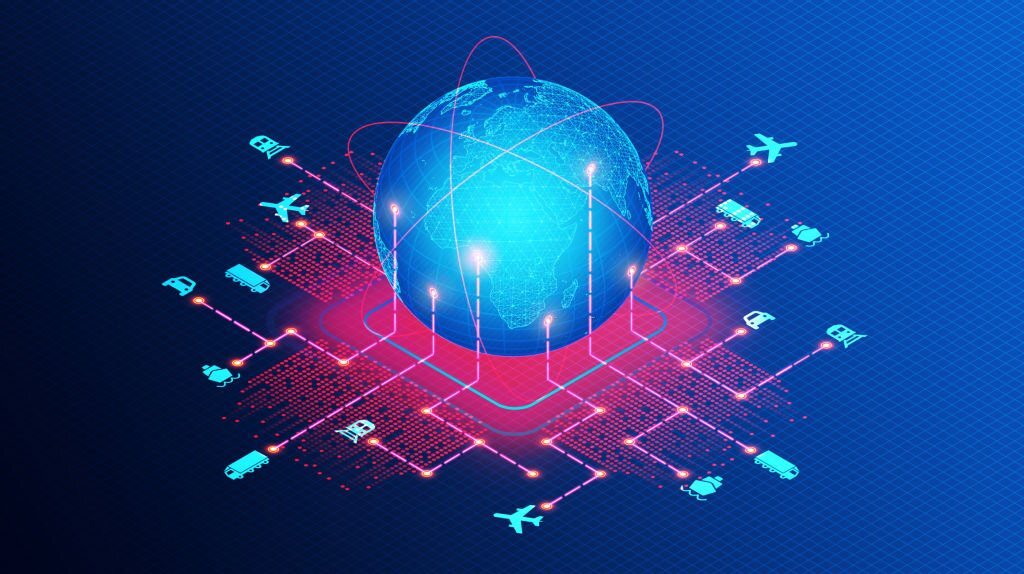Contents
- 1 How Internet of Things Transforms Fleet Management
- 2 FAQs about IoT in Fleet Management
- 2.1 Q1. How does internet of things benefit fleet management?
- 2.2 Q2. Can internet of things reduce fuel consumption in fleet management?
- 2.3 Q3. How does internet of things improve driver safety in fleet management?
- 2.4 Q4. What is predictive maintenance in fleet management?
- 2.5 Q5. How can internet of things enhance security in fleet management?
- 2.6 Q6. What are the key challenges of implementing internet of things in fleet management?
- 3 Conclusion
Introduction
The Internet of Things (IoT) has revolutionized various industries, including fleet management. By integrating IoT technologies, fleet management has become more efficient, cost-effective, and secure. In this article, we will explore the impact of IoT in fleet management and how it has transformed the industry. From improved vehicle tracking to real-time data analytics, IoT has opened up new possibilities for businesses operating in the fleet management sector.
How Internet of Things Transforms Fleet Management
IoT technology has enabled fleet managers to have real-time visibility into their vehicles, drivers, and assets. By connecting vehicles and various sensors, IoT devices collect and transmit valuable data, providing insights that help optimize fleet operations. Let’s delve into the key areas where IoT has made a significant impact:
Vehicle Tracking and Monitoring
With IoT, fleet managers can track their vehicles in real time using GPS-enabled devices. This technology allows for accurate location tracking, helping businesses monitor the movement of their fleet and ensure efficient route planning. Additionally, IoT sensors can monitor vehicle conditions such as fuel levels, tire pressure, and engine health, providing proactive maintenance alerts to prevent breakdowns and reduce downtime.
Driver Behavior Monitoring
Internet of things devices can monitor driver behavior and provide insights into driving patterns, including speed, acceleration, and braking. By analyzing this data, fleet managers can identify unsafe driving practices and implement training programs to improve driver behavior, enhance safety, and reduce accidents.

Furthermore, monitoring driver performance can lead to more efficient fuel consumption and lower maintenance costs.
Predictive Maintenance
One of the significant advantages of internet of things in fleet management is predictive maintenance. By leveraging data collected from sensors, fleet managers can identify potential issues before they become major problems. Predictive maintenance enables proactive repairs and reduces the risk of unexpected breakdowns, optimizing vehicle uptime and minimizing maintenance costs.
Fuel Efficiency Optimization
Internet of things devices provide real-time data on fuel consumption, enabling fleet managers to identify inefficiencies and take necessary actions to optimize fuel usage. With IoT, businesses can monitor fuel levels, detect fuel theft or leakage, and analyze driver behavior that impacts fuel efficiency. By implementing fuel-saving strategies based on IoT insights, companies can significantly reduce operating costs.
Route Optimization
Internet of things-based fleet management solutions offer advanced route optimization capabilities. By analyzing traffic data, weather conditions, and historical patterns, these systems can generate optimized routes for drivers. This not only saves time and fuel but also improves customer satisfaction by ensuring timely deliveries.
Enhanced Security and Safety
Internet of things technologies enhance the security and safety of fleet operations. Remote vehicle immobilization and geo-fencing features allow fleet managers to secure vehicles and assets from theft or unauthorized use. Moreover, IoT sensors can detect accidents or unusual events and automatically alert emergency services, ensuring prompt assistance and reducing response time.
FAQs about IoT in Fleet Management
Q1. How does internet of things benefit fleet management?
A1. Internet of things benefits fleet management by providing real-time vehicle tracking, driver behavior monitoring, predictive maintenance, fuel efficiency optimization, route optimization, and enhanced security and safety.
Q2. Can internet of things reduce fuel consumption in fleet management?
A2. Yes, internet of things can help reduce fuel consumption in fleet management by providing insights into fuel usage, detecting inefficiencies, and enabling optimization strategies based on real-time data.
Q3. How does internet of things improve driver safety in fleet management?
A3. internet of things improves driver safety in fleet management by monitoring driver behavior, identifying unsafe practices, and implementing training programs to enhance driver performance and reduce accidents.
Q4. What is predictive maintenance in fleet management?
A4. Predictive maintenance in fleet management involves using IoT sensors to collect data on vehicle conditions and analyzing it to identify potential issues before they cause breakdowns. This proactive approach reduces downtime and maintenance costs.
Q5. How can internet of things enhance security in fleet management?
A5. IoT enhances security in fleet management through features like remote vehicle immobilization and geo-fencing, which help prevent theft and unauthorized use. Internet of things sensors also detect accidents or unusual events and trigger alerts for prompt assistance.
Q6. What are the key challenges of implementing internet of things in fleet management?
A6. Some challenges of implementing internet of things in fleet management include data privacy and security concerns, initial setup costs, integration with existing systems, and ensuring reliable network connectivity.
Read on
GPS Tracking and Telematics in Fleet Management
Asset Tracking and Inventory Management in Fleet Management
Conclusion
The Internet of Things (IoT) has transformed the fleet management industry by enabling real-time vehicle tracking, driver behavior monitoring, predictive maintenance, fuel efficiency optimization, route optimization, and enhanced security and safety. With IoT technologies, businesses can make data-driven decisions, improve operational efficiency, reduce costs, and provide better customer service. As IoT continues to evolve, we can expect further advancements in fleet management, empowering businesses to streamline their operations and stay ahead in a competitive market.
We have a firm belief that every organization has a unique purpose only they can fulfil in this world. We work with you in organizing your resources to exploit opportunities so that you can fulfil your purpose and realize full potential. We build the capacity of people, processes and systems for organizational success and growth as well as nurturing a thriving ecosystem.
Ready to enhance your skills and boost your career? Explore our corporate training programs now and start your journey to success.









Comment here